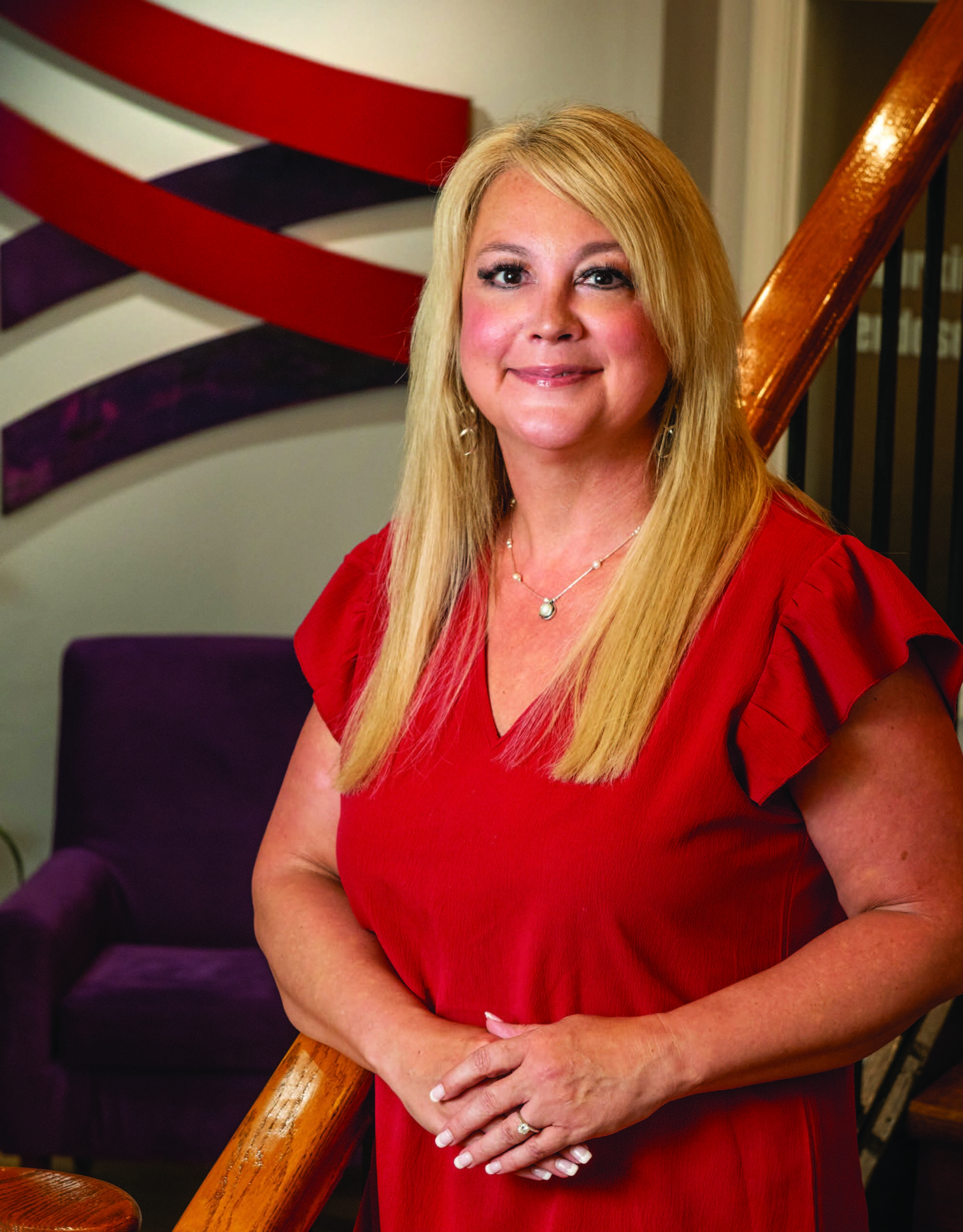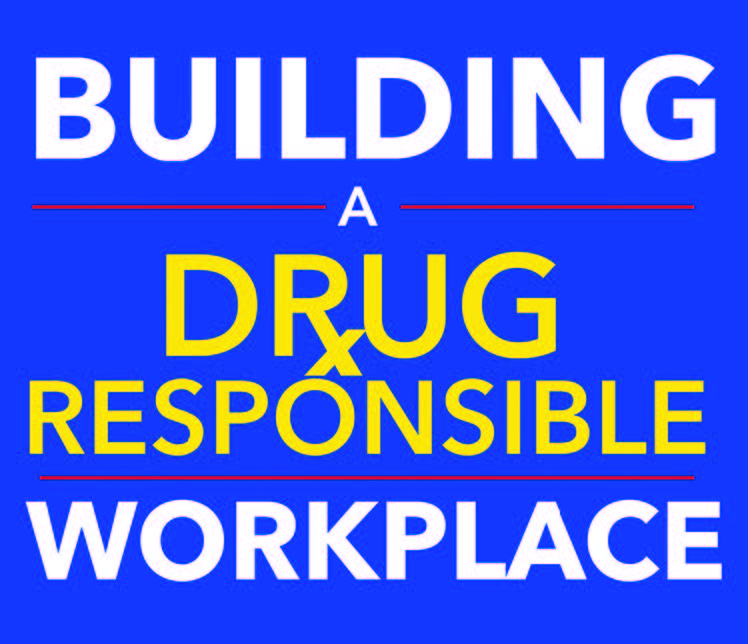Dr. Susan Bissett, the unrelenting head of the West Virginia Drug Intervention Institute, is leading the fight against the opioid epidemic in the Mountain State.

Dr. Susan Bissett was well on her way to fulfilling her long-held dream of becoming the president of a college or university when her life took a sharp turn.
“In 2016 I watched as paramedics put someone I knew into a body bag as the result of a drug overdose,” recalled Bissett. “It changed the way I thought about the whole opioid epidemic and really impacted me both personally and professionally.”
Instead of continuing her career in higher education, she chose to join the fight against the nation’s opioid epidemic. In 2019, she became the inaugural president of the West Virginia Drug Intervention Institute (DII). The Institute’s mission is to reduce overdoses and substance abuse through education, outreach and harm reduction. This includes training the public how to use naloxone (a medicine that can rapidly reverse an opioid overdose) to save lives. In Bissett’s role, which she has held for the past five years, she has touched the lives of more people than she could have ever imagined.
Born in New York but raised in Detroit, Michigan, Bissett did her undergraduate work at Oakland University in Rochester, Michigan, and received her graduate degree at Central Michigan University. At 24, she became a college program director and spent 25 years pursuing her goal, holding positions in upper-level administration and as a professor at several different colleges. She received her doctoral degree from Capella University in 2011. During her last six years in higher education, she served as assistant dean of the University of Charleston School of Pharmacy. It was there that her focus shifted dramatically.
“I started getting involved in a lot of community outreach related to overdose prevention and medication safety with the pharmacy students,” Bissett recalled.
In 2016 Bissett was a first responder to a fatal overdose in a part of the state where naloxone was not available. That experience galvanized Bissett into action. Realizing we all make choices as to where to spend our energy, Bissett made a move.
“I chose to spend my energy on the prevention side, helping people and kids in particular so that they never need those services,” she explained. “I also worked with people in active addiction who overdose accidentally through opioid poisoning, ensuring they have the opportunity to live through access to naloxone.”

In 2019 DII was established, and Bissett became its president. Funding came from the Winston-Salem Foundation through a donor-advised fund established by BB&T (now Truist Bank), and DII became a 501(c)3 entity.
At about the same time, Huntington Mayor Steve Williams had created a task force to deal with the drug crisis and invited Bissett to participate.
“Dr. Susan Bissett is a force of nature,” Williams asserted. “She has the unique ability to combine scientific brilliance with her relentless passion to create what our nation needs. She manages to link entrepreneurial innovation with data-driven solutions. The result creates an army of people prepared to save lives from the clutches of addiction.”
It was on Mayor Williams’ task force that Bissett first met Jan Rader, at the time captain of the Huntington Fire Department and a nationally renowned leader in the fight against the opioid crisis.
“We really hit it off,” said Rader. “I was so impressed with the work Susan was doing by trying to get naloxone into the hands of first responders. And when the West Virginia Drug Intervention Institute was formed and Susan’s name was suggested as its first director, I thought she would be a perfect fit. Today, Susan and DII are making a difference. They are getting naloxone where it’s needed, which is to friends and family of those suffering. We agree that if you can’t keep people alive then you can’t get them the help they need.”
Becoming fast friends with Jan Rader wasn’t the only personal relationship that developed from Bissett’s work fighting substance misuse. While still at the University of Charleston she was interviewed by Joe Murphy, the CEO of Murphy Media in Huntington, for a video he was producing about the opioid crisis. The like-minded duo teamed up to find a way to reach children about the dangers of drugs. They even developed a talking cartoon avatar called Rex the Rx™ and an accompanying curriculum. Together they spent three years traveling with pharmacy students to every elementary school in Kanawha and Putnam counties educating thousands of young children about medication safety.
“Joe and I continued our work together through the Institute,” Bissett explained. “Two years ago, he invented the OneBox™, an opioid emergency response kit that talks you through what to do in the event of an overdose. Our partnership started from our passion to help our community solve a problem. Our relationship has been a natural progression from friendship to courtship.”
Bissett eventually moved to Huntington to be with Murphy and the couple were married on June 15, 2024.
Steve Roberts, president of the West Virginia Chamber of Commerce, sings the praises of both Bissett and the OneBox™. Several years ago, recognizing the depth of substance misuse in the state, the Chamber went looking for a way to help employers deal with the issues surrounding this crisis. The Chamber adopted a toolkit that had been created in conjunction with Marshall Health and made it freely accessible on the Chamber website: www.wvchamber.com. In the process, Roberts learned of Bissett’s work in the drug prevention area.
“Susan is very highly regarded across West Virginia,” said Roberts. “Her role in the development of the OneBox™ means so much to us. The possibility of being able to save lives and help people get on the road to recovery is an idea around which we can be optimistic.”
Bissett’s work has been recognized and applauded in many circles. She was the subject of an article in West Virginia Living magazine; she has received an award from the U.S. Drug Enforcement Administration for her work in prevention education; and, again this year, she is one of four finalists for WOWK-TV and Nextstar Media Group’s Remarkable Women Contest.
Through a partnership with West Virginia Public Broadcasting, DII’s “Don’t Keep Rx Around” medication safety program became available nationwide in April 2024 via PBS’s open-source learning platform. In addition, a documentary aimed at middle and high school students about the impact of mental health and substance use on their lives was co-produced with West Virginia Public Broadcasting.
“West Virginia is the center of solutions,” Bissett said of her work with DII. “Too often people look at our state and see the problems. We may have been adversely impacted by this epidemic, but we are also a place for the nation to look to for meaningful and effective solutions to this crisis.”
Yet, from all accounts, she’s the epicenter of putting those solutions in place. Her career shift is making a big difference in West Virginia and beyond.